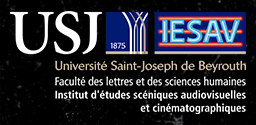Regards
Keywords
Molière, Arab theatre, Nahda, al-Naqqāš, Saddiki, Moroccan cultural heritage
Document Type
Article
Abstract
In this paper, we study the presence of Molière in the theatre of Mārūn al-Naqqāš and of Tayeb Saddiki. We show how al-Naqqāš appropriated Molière’s theatre to introduce a new literary genre in the Arab world: Western-style theatre. He employs the comedy and satire of Molière’s theatre as a tool for reflection. In his play al-Baẖīl, he deals with the theme of avarice and that of generational conflicts, which he exposes with a comic vein and satire. In doing so, he urges his fellow citizens to innovate in the arts, drawing from the classical adab and the glorious past of the Arab world.
The second part is devoted to Tayeb Saddiki’s appropriation of Molière’s life and comedy in his two plays: Molière and Love of Humankind and We Are Created for Mutual Understanding. In the first, Saddiki appropriates the comedy of Molière and its characters to revive the cultural heritage of Morocco, claim the plurality of his country, and especially fight against fundamentalism that had already eaten away at his neighbouring country and claimed victims — including his friend Abdelkader Alloula. In the second, he deals with political and cultural relations between Morocco and France, wherein the figure of Molière is used both as a guarantor of these relations and as a character common to both Moroccan and French cultures.
Résumé
Dans cet article, nous étudions la présence de Molière dans le théâtre de Mārūn al-Naqqāš et dans celui de Tayeb Saddiki. Nous montrons comment al-Naqqāš s’est approprié le théâtre de Molière pour introduire un nouveau genre littéraire dans le monde arabe, qui est le théâtre à l’occidentale. Il emploie le comique et la satire du théâtre de Molière comme un outil de réflexion. Dans sa pièce al-Baẖīl, il traite du thème de l’avarice et de celui des conflits de générations, qu’il expose avec la veine comique et la satire. Ce faisant, il exhorte ses concitoyens à innover dans les arts à partir de l’adab classique et du passé glorieux du monde arabe.
La deuxième partie, nous la consacrons à l’appropriation du vécu et de la comédie de Molière par Tayeb Saddiki dans ses deux pièces de théâtre Molière ou pour l’amour de l’humanité et Nous sommes faits pour nous entendre. Dans la première, Saddiki s’approprie la comédie de Molière ainsi que ses personnages pour revivre le patrimoine culturel marocain, revendiquer la pluralité de son pays et surtout combattre l’intégrisme qui a déjà rongé son pays voisin et a fait des victimes, dont son ami Abdelkader Alloula. Dans la deuxième, il traite des relations politico-culturelles entre le Maroc et la France, une pièce dans laquelle la figure de Molière est employée à la fois comme un garant de ces relations et comme un personnage commun aux deux cultures marocaine et française.
Recommended Citation
Kecili, Mahfoud
(2023)
"Molière chez les hommes de théâtre de la Nahda et Tayeb Saddiki,"
Regards: Vol. 29:
No.
29, Article 2.
DOI: 10.70898/regards.v0i29.798
Available at:
https://e-journals.usj.edu.lb/regards/vol29/iss29/2
Included in
Comparative Literature Commons, Creative Writing Commons, Film and Media Studies Commons, Fine Arts Commons, Theatre and Performance Studies Commons


